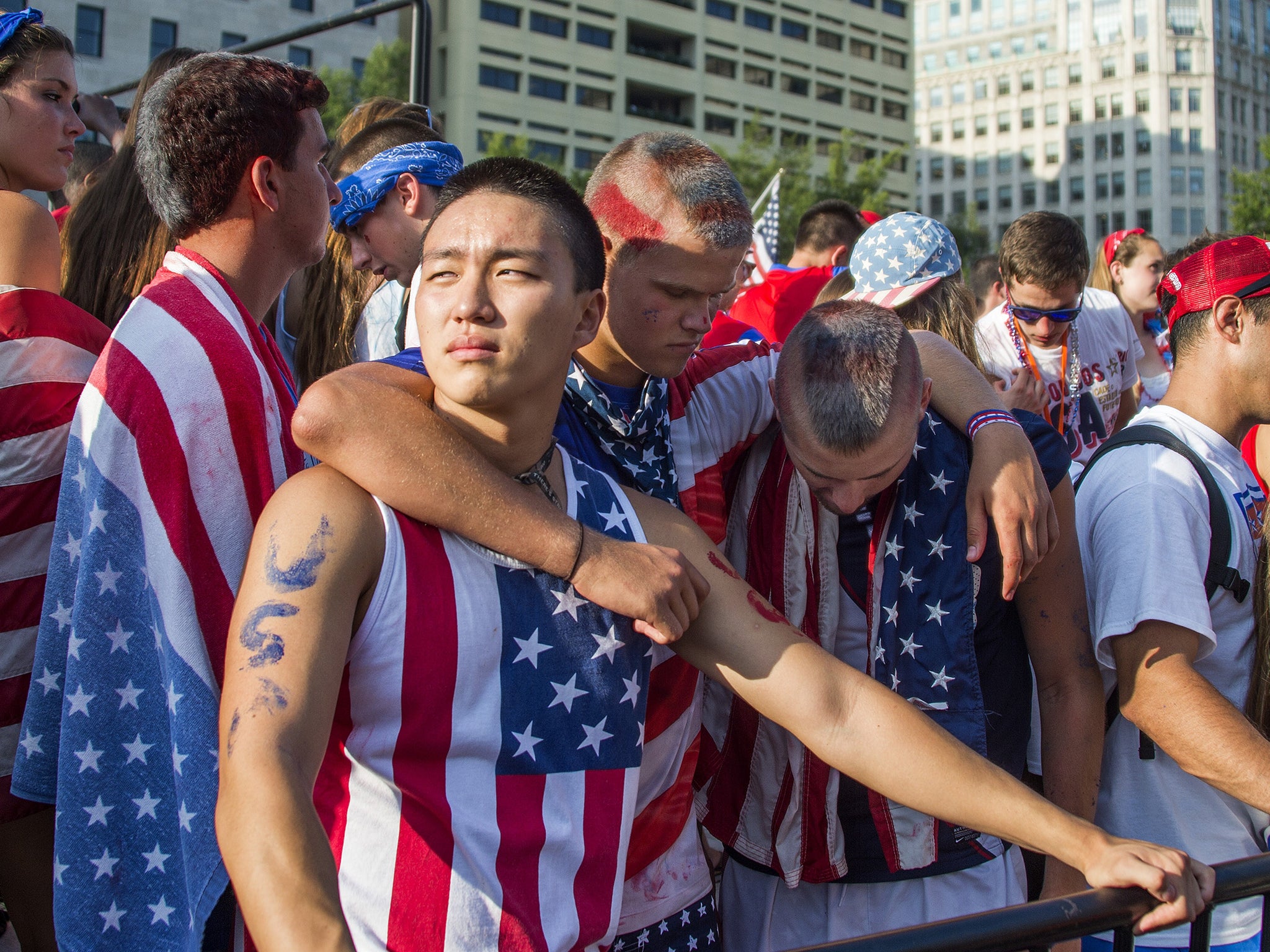World Cup 2014: So Americans like football now? It was only a matter of time
The games in Brazil take place at a far more civilised hour for America than did recent tournaments in Europe, Africa or Asia

Watching this World Cup in the US has been a lot like watching earlier ones in England, as American fans have learned to fear Germany, to despise Cristiano Ronaldo, and to drink large amounts of beer at lunchtime. In Brazil, Team USA’s travelling supporters have even been annoying the locals with their rowdy behaviour. Any of this sound familiar?
On Tuesday – at lunchtime – Tom’s Urban bar in Downtown Los Angeles was packed with fans being entertained by Brazilian carnival dancers and drummers as they waited for Team USA’s clash with Belgium to begin. This classic American sports bar, its walls papered with hi-def television screens, is mere yards from the Staples Centre, home to basketball's LA Lakers and the LA Kings ice hockey team.
Recently, when the Kings played the New York Rangers in the final of ice hockey’s Stanley Cup, the game drew six million viewers. The concluding tie of the NBA Finals last month attracted 18 million. But when Team USA played Portugal 10 days ago, the audience was 25 million. Remarkably, Americans are beginning to call “soccer” by its proper name.
Much has been made of the cultural reasons why the US has so embraced this particular World Cup, but there is also a persuasive logistical explanation: the games in Brazil take place at a far more civilised hour for America than did recent tournaments in Europe, Africa or Asia. Tejal, a 36-year-old fan who works in the hospitality industry, also pointed to the NBC network’s $250m acquisition of the broadcast rights for the English Premier League prior to last season. “There’s way more exposure to football in the US now,” he said, “so people are far more interested in the game.”
Tejal’s law student friend Charles, also 36, skipped class to watch the Belgium match at Tom’s Urban. “The World Cup only happens every four years,” Charles reflected. “And how often does the US even get out of the group stages? I think everyone should take the day off!” He added: “But we do need a better song. Our chants suck.”
Though “USA-USA-USA” may be no “Engerland-Engerland-Engerland”, the coverage here is also charmingly familiar, since so many of ESPN’s commentary team are English. Some cultural differences persist: English commentators marshal their army of trusty clichés, while US analysts demonstrate a boundless enthusiasm for semi-relevant statistics, such as: Tim Howard made more saves in Tuesday’s match than any other US goalkeeper in World Cup history. (And by the way, is it mere coincidence that the key player in America’s football team was the one using his hands?)
Belgium 2 United States 1 player ratings
Show all 23Occasionally, explanatory ESPN captions appear onscreen, for the benefit of those US viewers who have yet to grasp such footballing concepts as extra time. Surely they won’t forget that particular aspect of the game after the rollercoaster last half-hour of this match. As the Belgian goals went in, heads were clutched, groans let out and the crowd began to come to terms with its team’s inevitable fate. But there is one English football fans’ experience that the Americans are yet to suffer: they have never gone out of a World Cup on penalties.
Subscribe to Independent Premium to bookmark this article
Want to bookmark your favourite articles and stories to read or reference later? Start your Independent Premium subscription today.

Join our commenting forum
Join thought-provoking conversations, follow other Independent readers and see their replies